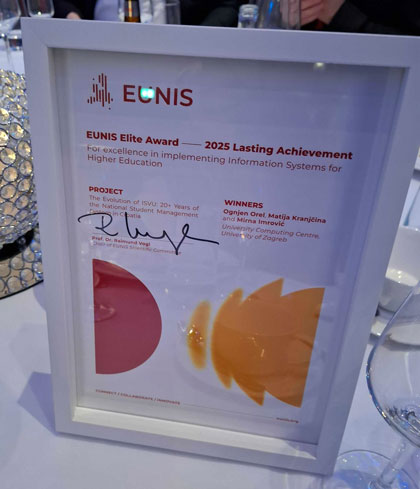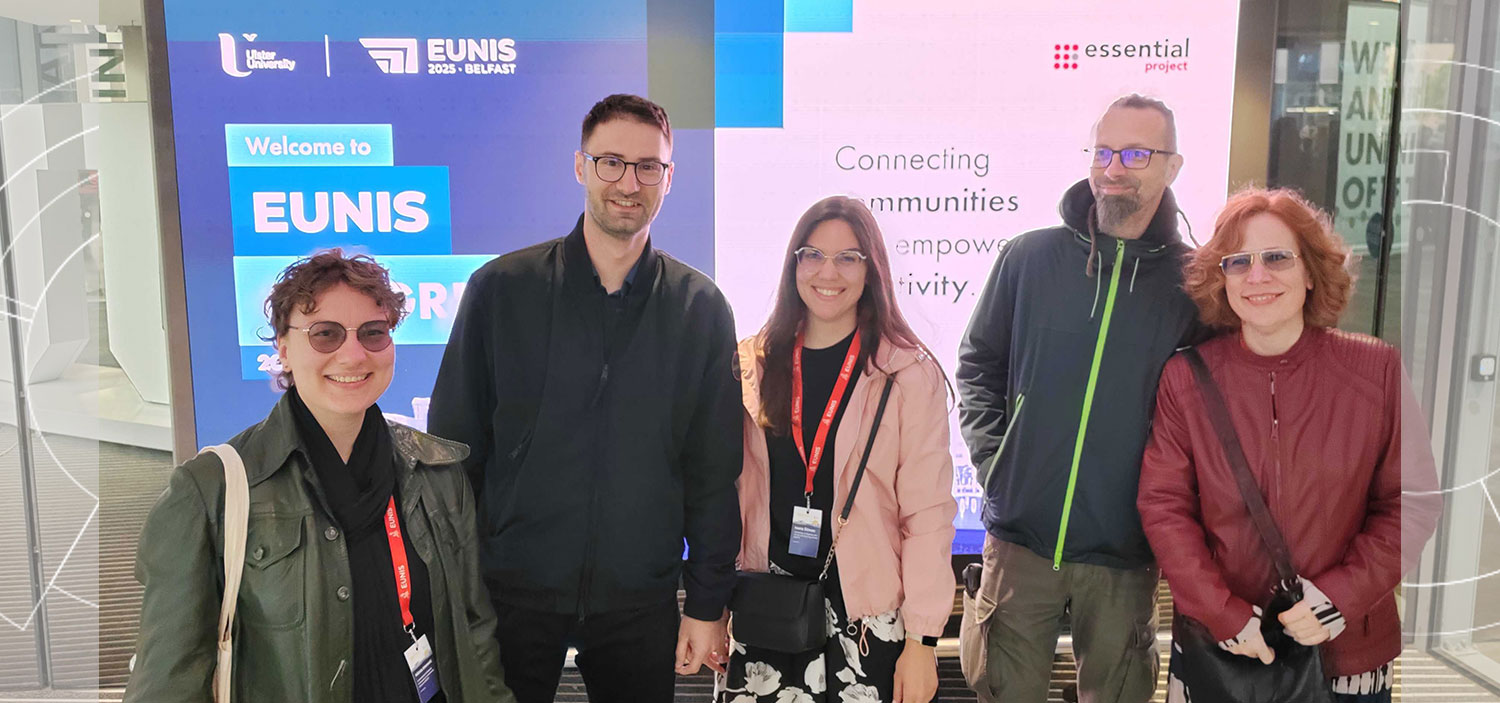 At the EUNIS 2025 Annual Congress, SRCE was awarded the prestigious EUNIS Elite Award 2025 in the Lasting Achievement category, in recognition of its excellence in implementing national information systems for higher education. The award was granted based on the professional paper titled:
At the EUNIS 2025 Annual Congress, SRCE was awarded the prestigious EUNIS Elite Award 2025 in the Lasting Achievement category, in recognition of its excellence in implementing national information systems for higher education. The award was granted based on the professional paper titled:
„The Evolution of ISVU: 20+ Years of the National Student Management System in Croatia“.
Authored by Dr. Ognjen Orel, Matija Kranjčina, and Mirna Imrović, the paper highlights the success story of the ISVU – National Student Information System, which over more than two decades has evolved into a central pillar of digital infrastructure for higher education in Croatia. ISVU is currently used by all public and several private higher education institutions in the country—despite its voluntary adoption—demonstrating its high level of trust, relevance, and quality.
Originally developed in the early 2000s at the Faculty of Electrical Engineering and Computing (FER), University of Zagreb, under the leadership of Prof. Dr. Mirta Baranović, ISVU has been continuously improved and expanded. From 2011 onward, SRCE took full responsibility for the development and operation of the system, with financial support and strategic oversight provided by the Ministry of Science, Education and Youth.
What started as a local initiative became a nationwide standard, both functionally and technically. Today, ISVU is tightly integrated with other national-level systems in science and higher education, as well as with more than 300 local systems and institutional applications. This ecosystem is supported by the ISVU REST API, which handles over 1.5 billion data requests annually.
The awarded paper is dedicated to more than 60 engineers, developers, and support professionals who have worked directly on the development, expansion, and maintenance of ISVU over the past 20+ years.
This recognition by EUNIS (European University Information Systems organisation) underlines the significance of long-term institutional commitment and technical excellence in building robust digital infrastructure for the academic community.


